Explainer: Pride in Asia
Progress, Stagnation, and Setbacks
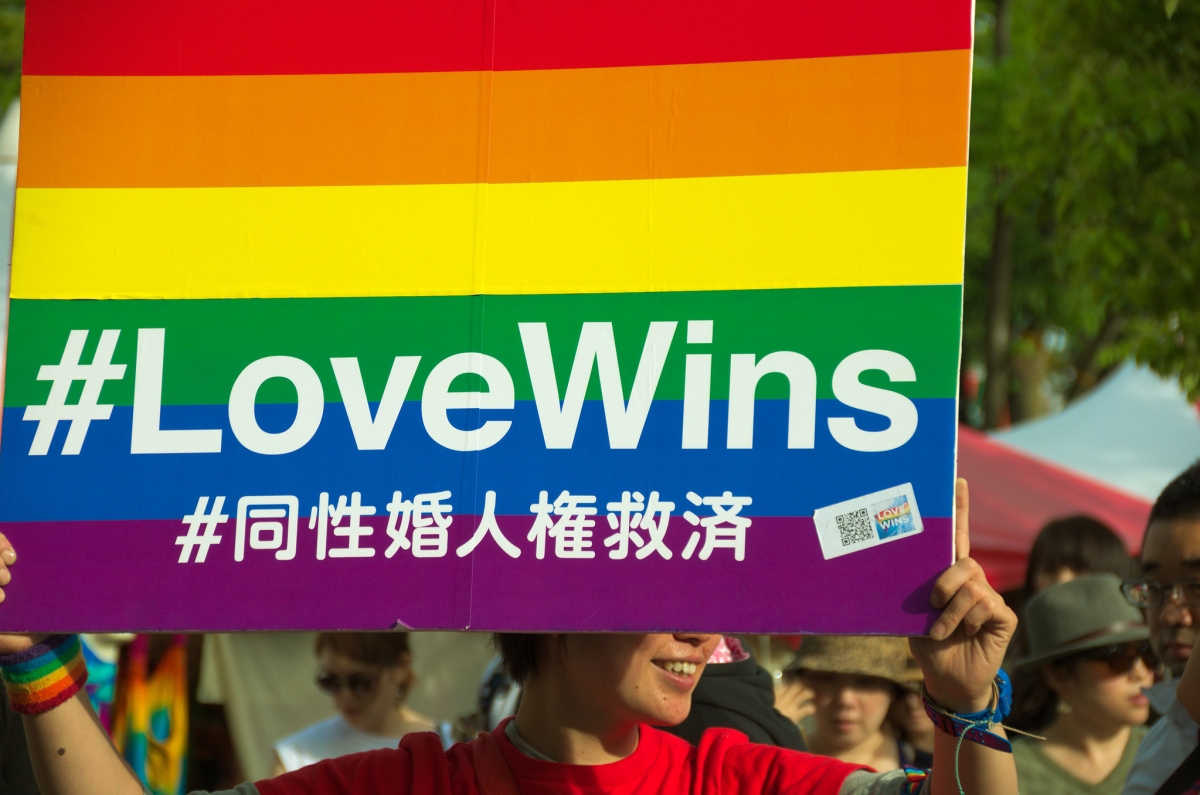
LOVE IS ALL AROUND, SORT OF
The struggle for equal rights and recognition of the LGBTQ+ community throughout Asia is one of encouraging wins, exhausting stagnation, and outright setbacks. Here's an overview of recent developments confronting LGBTQ+ people, and with that all of us, in various countries in the region.
Put in perspective, several countries in Asia saw major improvements in the rights and protections of LGBTQ+ people.
- People in Japan, South Korea, India, and Indonesia became significantly more tolerant of homosexuality, according to the 2019 Pew Global Attitudes Survey. Governments are often slow to follow suit, however.
- Tolerance in the Philippines remained high, with 3 out of 4 Filipinos saying they have no issues with their LGTBQ+ compatriots, ranking the archipelago a bit higher than the U.S. and just below Canada and the U.K.
- This trend of growing tolerance is bound to continue, as younger generations are more accepting of same-sex relationships.
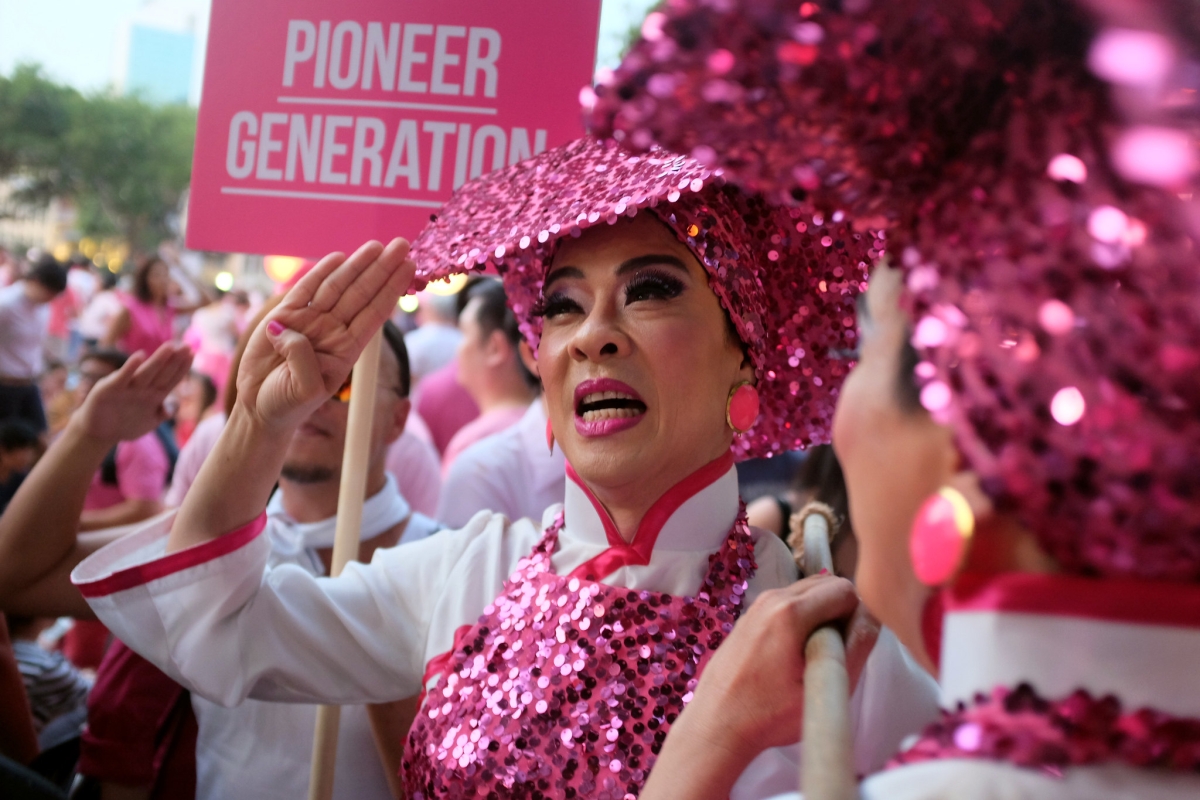
Some recent notable wins for LGBTQ+ rights and protections in Asia:
- Taiwan is the pink beacon of Asia.
- In 2019, it became the first country in the region to legalize same-sex marriage, three years before the Swiss voted to do so. LGBTQ+ people enjoy legal protection against discrimination at school and work.
- The government has promised the introduction of a third gender option on IDs, although this has yet to be implemented.
- Japan is making significant progress on multiple levels, except the national one.
- November 2022, Tokyo will join over 200 other municipalities recognizing same-sex partnerships. Children of either partner can be included in the registration.
- In 2021, the Sapporo District Court issued a watershed ruling, saying the government’s failure to recognize same-sex marriage is unconstitutional. The presiding judge said, sexual orientation is a personal characteristic that is not a matter of choice, and as such, it can be said to be similar to sex, race, and so on.
- A second-ever ruling on the same issue is expected on June 20, 2022, in Osaka, clearing the way for a Supreme Court ruling with national effect some time in 2023.
- Even though 82% of Japanese say they support legalizing same-sex marriage, Prime Minister Kishida doesn’t seem keen on making any fast moves.
- Thailand’s cabinet surprised friend and foe by approving a bill which will allow same-sex couples to register their partnership and grants them the right to adopt children, own joint property, and more. The bill has been in the works since 2012. Now that Prime Minister Prayut has thrown his weight behind it, both houses of the Thai parliament will likely accept it as well.
- Singapore has a long way to go in granting equal rights to LGBTQ+ persons, but a ruling from the Court of Appeals in February 2022 is seen as a step forward. The court decided that two men who engage in consensual sex in private cannot be prosecuted. Homosexuality is technically illegal in the city-state under a surviving colonial-era British law. India’s Supreme Court struck down a similar colonial law in 2018.
- China in April 2022 made gender reassignment surgeries more accessible, by lowering the minimum age from 20 to 18. The government also scrapped two paralyzing requirements for access to the surgery: undergoing a year of psychological treatment prior and getting approval from an immediate family member.
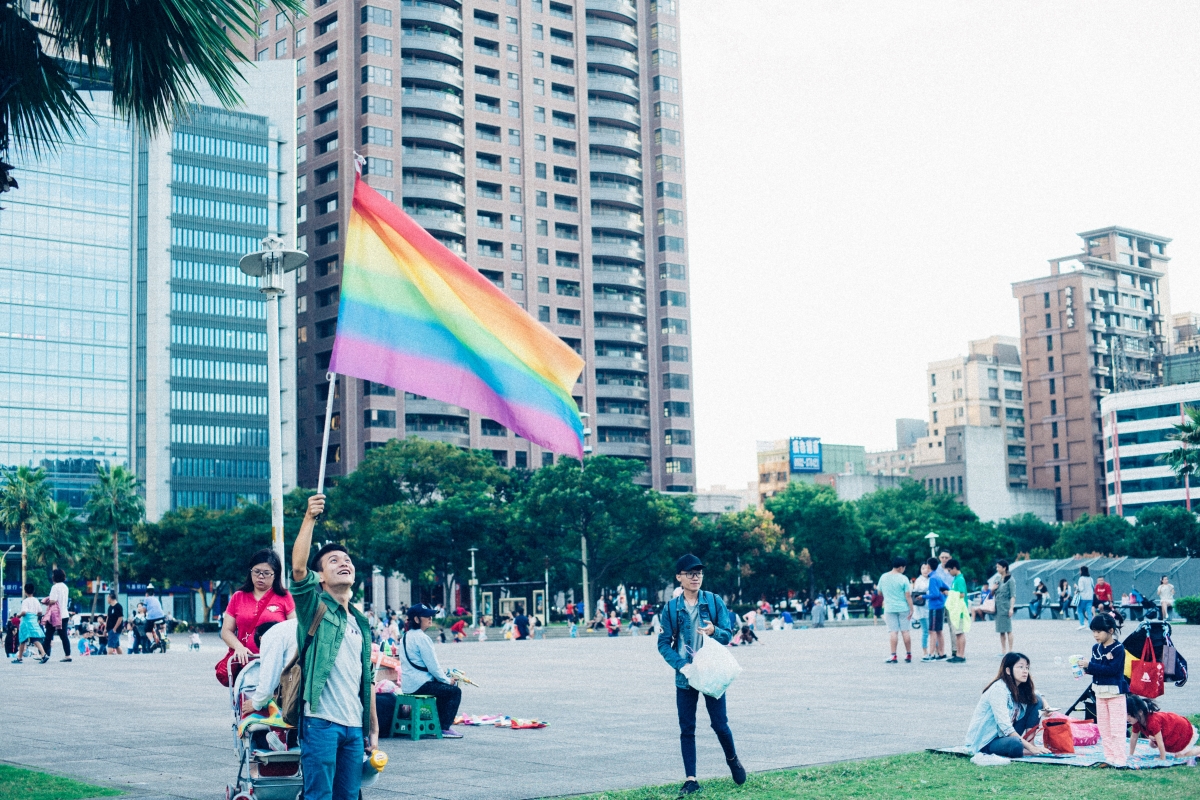
CLOUDS OBSCURING THE RAINBOW
Even though the general trend is towards greater tolerance of LGBTQ+ persons, the position of the community has been worsening in a few countries—in some significantly and unsurprisingly.
- Afghanistan was already a dangerous place for LGBTQ+ people before the Taliban regained control almost a year ago. Same-sex relations were criminalized in 2018 by then-President Ashraf Ghani. Unsurprisingly, that hasn’t changed under the Taliban. Shortly before the fall of Kabul, a Taliban judge was quoted by German tabloid Bild saying there can be only two punishments for homosexuals: stoning, or having a wall fall on them.
- In Indonesia, same-sex relations were always legal on a federal level, but punishable under Shariah law in Aceh province.
- In 2020 the government proposed a Family Resilience Bill defining homosexuality as a deviance, requiring LGBTQ+ people to report to authorities for rehabilitation. The bill didn’t pass, but activists have reported an escalation in vigilante attacks and violence against the LGBTQ+ community.
- Public acceptance of homosexuality is slowly growing but remains at one of the lowest levels anywhere with 80% of respondents in 2019 Pew research calling for an outright ban.
- Last month, the government summoned the British ambassador after public outcry over the U.K. embassy in Jakarta flying the LGBTQ+ flag.
- A shock jock’s YouTube video on being gay in Indonesia, now deleted, also caused uproar and led to a renewed push from the government to criminalize homosexuality sometime this year.
- The LGBTQ+ community in China is experiencing the same narrowing of civil freedoms under Xi Jinping as many other groups in society. While the 2010s saw organizations and events geared towards LGBTQ+ people pop up in multiple cities, starting with Shanghai Pride in 2009, most have now shut down or severely limited their visibility.

IN LIMBO
In many countries, the position of LGBTQ+ people hasn’t changed much in recent years. That usually means they’re stuck in a limbo, lacking equal rights and protections. How much they're behind, differs per country.
- In South Korea, gay people were blamed for the second wave of COVID outbreaks in May 2020, after infections were traced back to nightclubs in Itaewon, a gay nightlife district in Seoul.
- The country ranks 34th out of 38 on LGBTQ+ inclusiveness among member states of the Organization for Economic Cooperation and Development. Same-sex partnerships are in no way recognized.
- In a 2019 nationwide survey, just under half of Koreans said they didn’t want a gay friend, co-worker, or neighbor.
- The very active protestant community is seen as an important reason why Korea lags Japan and Taiwan in LGBTQ+ acceptance.
- Malaysia is hanging on to a colonial-era law criminalizing gay sex. As in Singapore, the law is rarely enforced on a federal level. However, several states impose Shariah law, making Muslim LGBTQ+ persons especially vulnerable to arbitrary arrest, assault, and extortion.
- The Sultan of Brunei announced in April 2019 that gay sex will be punished with death by stoning. After international uproar, he was forced to walk that statement back a month later. However, men caught having sex with each other still face fines, caning, or jail.
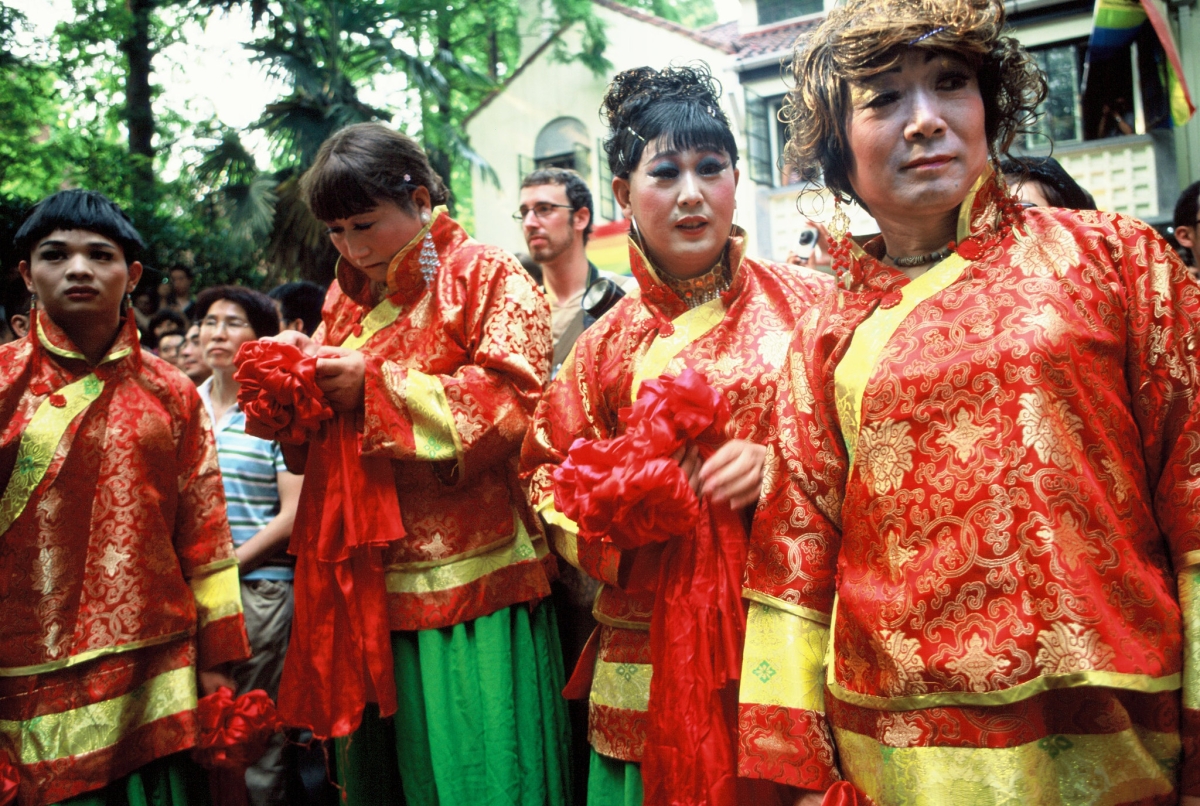
CENSORSHIP
Several countries use censorship laws to subtlety make life difficult for the LGBTQ+ community, as an alternative to outright prosecution which would cause much more ire internationally.
- In Singapore, any movie or TV-show featuring same-sex couples or parenting as a main story line is automatically rated as only suitable for an adult audience, based on the idea that media should not promote alternative lifestyles that may ‘turn children’. A wildly successful sitcom like Modern Family features a big orange label at the start of broadcast, warning the program contains ‘some homosexual content’. Over the years, the city-state has also turned up the pressure on the annual Pink Dot pride event. It has restricted foreign companies to sponsor the event, and forbids any foreign person from attending.
- Pakistan already has criminal laws against ‘obscene acts’, plus areas with Shariah law. The country in 2016 added the Prevention of Electronic Crimes Act to censor websites on LGTBQ+ issues.
- Indonesia uses a vaguely worded National Pornography Act to target content aimed at the LGBTQ+ community.
- Malaysia’s censorship laws prohibit the publication of anything the government deems ‘obscene’ or an affront to ‘public decency’. The laws are used to restrict the freedom of expression of LGTBQ+ groups and make it difficult for them to organize.
- A year ago, China started cracking down on LGBTQ+ groups at universities, using the country’s Cybersecurity Law, which bans the spread of information deemed disruptive to the social order. Many of the largest WeChat accounts of these groups have been shut down, their history and profiles deleted.
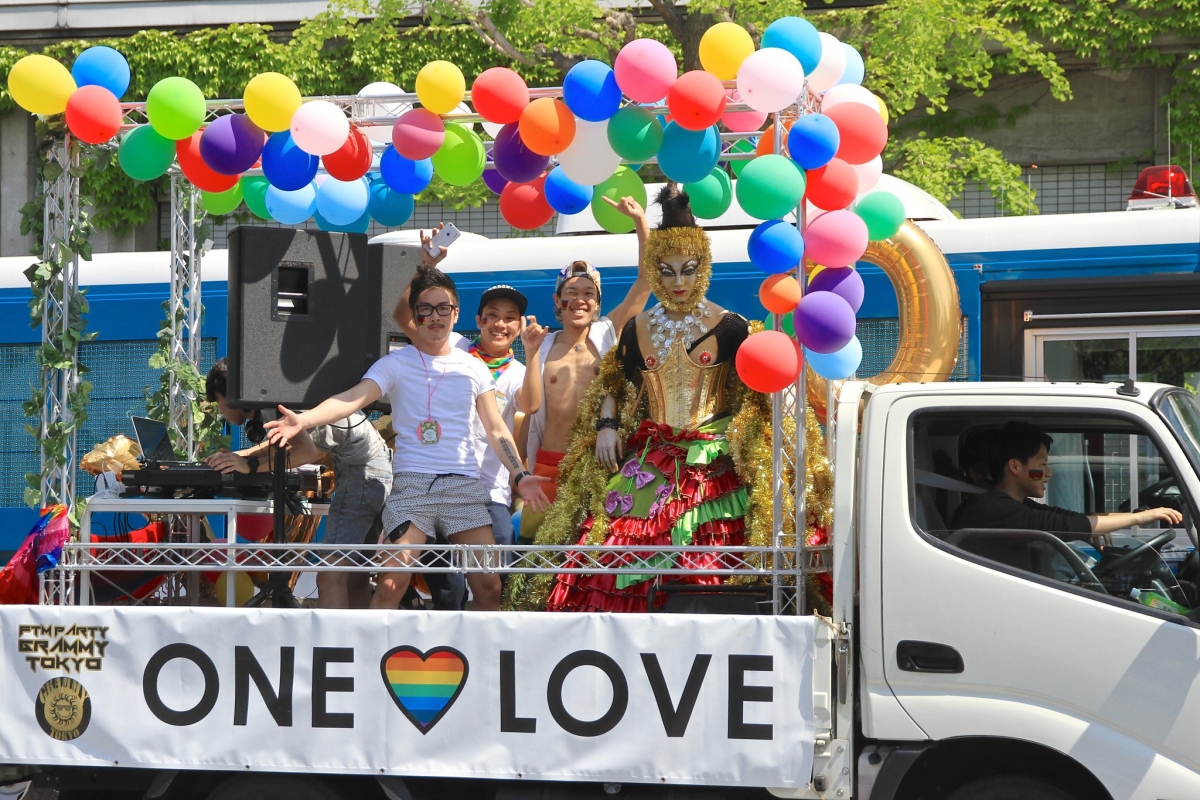
KNOW MORE
The info in this Explainer barely scratches the surface of the wide variety of experiences of LGBTQ+ people throughout the vastness of Asia. Here’s a few places offering more info:
- The organization Outright International keeps tabs on the human rights position of LGBTQ+ people around the world. They offer an extensive look on the situation in all countries in Asia.
- In 2021, our friends at Asia Society Philippines produced the Representing Pride video series. It features the stories and experiences of LGBTQ+ people and their activism throughout the region.
- The Diplomat describes the resilience of East Asia’s LGBTQ+ community navigating constantly shifting boundaries.
